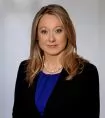- with Senior Company Executives, HR and Finance and Tax Executives
- with readers working within the Accounting & Consultancy, Banking & Credit and Healthcare industries
On July 5, 2016, Justice Perell of the Ontario Superior Court released a decision in Fischer v IG Investment Management Ltd., which (among other things) denied the plaintiffs' motion to examine certain senior executives of the defendant AIC Limited ("AIC"), and CI Financial Corp. (parent of the defendant CI Mutual Funds Inc. ("CI")).
Background
Fischer is a class proceeding dealing with the investment technique known as 'market timing', which involves short-term 'in-and-out' trading of mutual funds. The plaintiffs in Fischer allege that the defendant mutual fund managers AIC and CI breached a duty of care and fiduciary duty owed to class members by permitting market timing activity.
Fischer endured a long road to certification, culminating in the Supreme Court's decision to uphold certification, discussed in detail in our ending in our earlier post and Osler Update (where we reviewed the Court's changes to the "preferable procedure" analysis).
Seeking Second Discovery of Senior Executives
The plaintiffs brought the motion to examine top senior executives as additional discovery witnesses, each corporate defendant having already produced another less-senior witness for discovery.
At AIC, the plaintiffs now sought leave to examine Michael Lee-Chin, President and CEO of AIC at the relevant time. Notably, class counsel had originally sought to examine Mr. Lee-Chin as AIC's discovery witness, but were advised that Mr. Lee-Chin did not have any recollection of the matters at issue and that in fact no one employed at AIC at that time had knowledge or recollection of the events.
At CI, the plaintiffs now sought leave to examine Stephen MacPhail, President and CEO of CI Financial Corp. Class counsel had originally sought to examine Bill Holland, who was Mr. MacPhail's predecessor at CI Financial Corp., but were advised that neither Mr. Holland, nor any employee of CI, had comprehensive knowledge of the events.
The Test for Examining a Second Witness
To examine the senior executives, the plaintiffs were required to meet the test for additional witnesses and demonstrate: (a) that they cannot otherwise obtain the discovery to which they are entitled from the examined party's witness; and (b) that there are other special circumstances related to whether the initial representative was uninformed about the material issues.
The plaintiffs failed to meet this test. In his decision released July 5, 2016 denying the plaintiffs' motion, Justice Perell said the plaintiffs' underlying submission was that their request ought to be granted as a matter of justice and the pursuit of truth. Justice Perell also noted that the plaintiffs knew that the initial discovery witnesses were not involved – or had limited involvement – in the relevant events, and yet had agreed to discover those witnesses anyway (after initially requesting to discover the CEOs).
Key Take-Aways for Class Action Defendants
Corporate defendants in large, high-profile actions (in particular, class proceedings) are often faced with plaintiffs seeking to examine for discovery senior executives of defendants. This approach is typically undertaken to publicize the case, possibly embarrass the defendant corporation and/or its senior executives, and leverage settlement.
Importantly, where a person has already been examined on behalf of the corporation, Justice Perell reinforced that parties seeking to examine a second discovery witness, including high-profile witnesses, will face a very high hurdle and that such requests are rarely granted.
The content of this article is intended to provide a general guide to the subject matter. Specialist advice should be sought about your specific circumstances.



